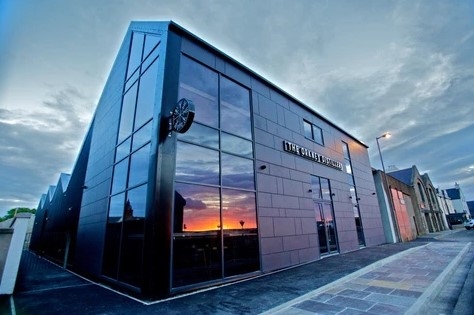
The HySpirits project has been awarded £148,600 by the Department of Business, Energy, and Industrial Strategy (BEIS) to conduct the study.
The project will investigate the development of a thermal fluid heater system to operate with hydrogen as the combustion fuel within the distilling process. This system will remove the need to use fossil fuels such as kerosene and liquid petroleum gas.
Biofuel from whisky by-products
World's first biofuel from whisky residues aim for lead in £100m market
HySpirits brings together Edinburgh Napier, project lead the European Marine Energy Centre (EMEC), which uses wind and tidal technology to produce hydrogen, and Orkney Distilling Ltd. The university will assess the distillery site and develop the hydrogen system design and specification.
HySpirits was awarded funding after taking part in the Industrial Fuel Switching Competition run by BEIS earlier this year, which aims to stimulate early investment in fuel switching processes and technologies.
“Using the power of hydrogen could help cut emissions, create jobs and make industrial processes cleaner and greener, benefitting the whole economy as we work towards net zero by 2050,” said climate change minister Lord Duncan. “This innovative project from HySprits/EMEC will help our efforts to roll out hydrogen at scale by the 2030s - a crucial step towards the end of the UK’s contribution to global warming.”
Hydrogen has been identified as an alternative fuel for energy-intensive industrial processes. If the technology and business case detailed in the feasibility study proves viable, this offers a decarbonisation opportunity for the wider industry and The Orkney Distillery could become the world’s first hydrogen-fuelled distillery.
It is hoped that the findings of this study can be replicated across the sector with the added benefit that the technology will be designed to be retrofitted into existing infrastructure.
Jon Clipsham, hydrogen manager at EMEC, said: “The HySpirits project blends tradition with innovation. Decarbonising the distilling process with green hydrogen derived from local renewables is a great example of the creative ways Orkney is addressing the challenges of the energy transition.”
“Industrial fuel switching in order to lower carbon emissions provides a significant challenge, particularly in the food and drink sector,” said Prof John Currie, director of the Scottish Energy Centre at Edinburgh Napier. “This project has brought together a partnership which has enabled the development and exploitation of a readily-deployable hydrogen technology which can make a significant impact across the process industries in order to help achieve our global objectives.”
Funding for the pilot project is part of £390m government funding announced on August 29, 2019, to help industry cut emissions.





Project to investigate hybrid approach to titanium manufacturing
What is this a hybrid of? Superplastic forming tends to be performed slowly as otherwise the behaviour is the hot creep that typifies hot...